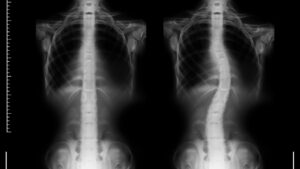Vertigo can make it feel like the world around you is spinning and whirling, and it can be disconcerting when it happens to you. We empathise with you and understand the discomfort and effect it brings to your overall state of mind and body.
As such, we hope that this article will educate you about the dizzying sensation as well as effective home and chiropractic solutions that you can try in order to alleviate the symptoms and discomfort.
What is vertigo?
Vertigo can be characterised by the whirling and spinning sensation that is often accompanied by loss of balance and dizziness. It is not to be confused with being lightheaded. Individuals experiencing vertigo often feel as though they are the ones moving or spinning or that the world around them is spinning.
Vertigo stems from several factors, such as stress, medications, cervical spine misalignment, head injuries, and inner ear issues. One common type of vertigo is benign paroxysmal positional vertigo, BPPV for short. It is usually triggered when there are specific changes to the position of the head, such as tipping the head up or down, lying down, or turning over and sitting up in bed.
Common causes of vertigo
There are two types of vertigo: central and peripheral vertigo. Peripheral vertigo happens due to a disorder in the inner ear called the semicircular canals. Peripheral vertigo is usually caused by:
- BPPV
- Medications such as salicylates, diuretics, cisplatin, and aminoglycoside antibiotics
- Trauma such as head injuries
- Neuronitis or the inflammation of the vestibular nerve
- Labyrinthitis or the swelling and irritation of the inner ear
- Meniere disease
- Pressure on the vestibular nerve as a result of a noncancerous tumour
Central vertigo happens due to an issue in the brain. It is usually caused by:
- Blood vessel disease
- Drugs such as aspirin and anticonvulsants
- Multiple sclerosis
- Stroke
- Noncancerous and cancerous tumours
- Vestibular migraine
Common symptoms of vertigo
The primary symptom would be the feeling that you or your surroundings are spinning or moving, followed by vomiting and nausea.
However, depending on the exact cause, other signs of vertigo include:
- Ringing in the ears
- Losee of balance often results in falls
- Loss of hearing in one or both ears
- Problem focusing the eyes
If you suffer from central vertigo, you may experience some of the added symptoms below:
- Weakness in the limbs
- Slurred speech
- Facial paralysis
- Issues with eye movement
- Double vision
- Swallowing difficulty
Home remedies for vertigo
There are home remedies that help to reduce the symptoms of vertigo, such as drinking ginger tea, cutting down on sodium, taking vitamin C supplements, managing your stress level, and staying hydrated.
- Ginger tea: It has calming properties, making the feeling of spinning less severe. Ginger tea also helps to ease vomiting and nausea.
- Cutting down on sodium: Sodium leads to water retention in our body, making our ears feel full and causing dizziness.
- Taking vitamin C supplements: Whether it is from fresh fruits, such as strawberries, lemons, and oranges, or from supplements, vitamin C makes our inner ear nerves function better so that we can keep our balance right.
- Managing stress level: Stress will only worsen your vertigo. As such, keeping our minds relaxed and calm can help.
- Staying hydrated: You do not want to have too much water in your body, nor do you want to have too little. A dehydrated body will result in lightheadedness and dizziness. Hence, keeping yourself adequately hydrated is the way to go. Just take note that alcohol and caffeine will only worsen your vertigo.
With that being said, they are essentially home remedies, and proper treatment should still be conducted.
Chiropractic solutions for vertigo
Chiropractic care offers a non-invasive approach to reduce any vertigo-related symptoms, such as cervical decompression, upper cervical chiropractic adjustments, and canalith repositioning.
Many studies have revealed that there are significant improvements in balance as well as reducing neck pain and dizziness. These findings emphasise the results that chiropractic care offers for vertigo relief.
- Cervical decompression: It involves stretching the neck gently to relieve pressure off the spinal nerves and discs, which can help with managing any related headaches.
- Upper cervical chiropractic adjustments: It is a specialised technique that focuses on the upper part of the neck where musculoskeletal misalignments affect the inner ear and nervous system. During the adjustment, the chiropractor will manipulate the neck gently, realigning the spine and restoring proper function.
- Canalith repositioning: Also known as the Epley manoeuvre, this technique involves guiding your head through specific motions that help to move and dislodge calcium crystals that are disrupting proper movement in the semicircular canal, causing vertigo.
Conclusion
We understand the discomfort of vertigo. If you are struggling with persistent symptoms and find that they are affecting your overall quality of life, then it is best to make an appointment with our chiropractors at Healing Hands Chiropractic.
There is no better time to break free from vertigo and regain normal balance. Apart from that, we offer common musculoskeletal solutions, such as lower back pain treatment and knee pain treatment. Contact us to make an appointment today!



